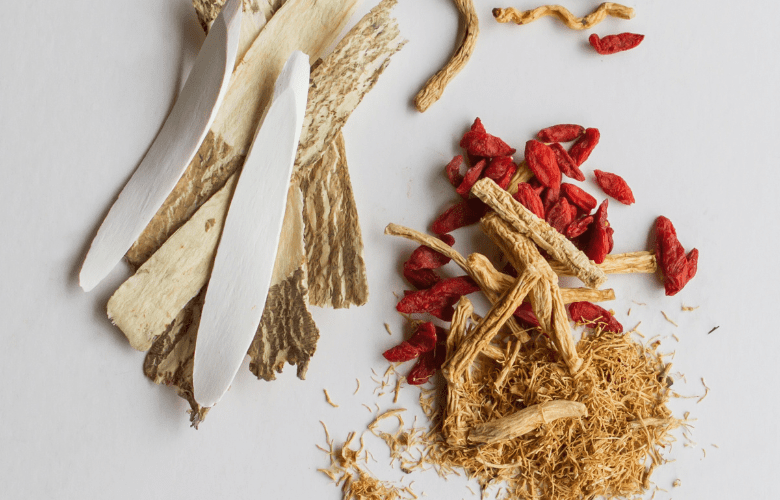How Beneficial is Chinese Medicine for Fibromyalgia Sufferers?
Pain and fatigue from fibromyalgia can be challenging to manage. However, Chinese medicine may offer relief for this condition with its understanding of the body’s energy system, natural remedies, and focused treatments. Explore how Chinese medicine may be able to help those living with fibromyalgia.
What is Fibromyalgia?
Fibromyalgia is a chronic condition characterized by widespread musculoskeletal pain throughout the body, as well as fatigue, sleep disturbances, and cognitive issues such as difficulty with concentration and memory. The exact cause of fibromyalgia is unknown, but it is believed to involve changes in the way the brain processes pain signals. Symptoms can last for years and worsen over time. People with fibromyalgia often experience heightened sensitivity to physical contact or stimulation, which can lead to increased pain.
Symptoms of fibromyalgia can vary from person to person, but the hallmark symptom is chronic pain that is present in multiple areas of the body. This pain may be described as aching, stabbing, burning, or shooting, and it may be accompanied by tenderness in the muscles and joints. Other symptoms of fibromyalgia can include:
- Fatigue and low energy
- Sleep disturbances, including difficulty falling or staying asleep
- Cognitive difficulties, such as “fibro fog” or difficulty with memory and concentration
- Headaches or migraines
- Sensitivity to light, noise, or temperature changes
- Irritable bowel syndrome (IBS) or other digestive issues
- Anxiety and depression
- Numbness or tingling in the hands and feet
Fibromyalgia can be a challenging condition to manage, and many people with fibromyalgia turn to alternative therapies, such as Chinese medicine, to help alleviate their symptoms.
How Can Chinese Medicine Help?
Chinese medicine focuses on treating the whole person, not just fibromyalgia symptoms. This ancient form of medicine understands that emotional and physical pain can be linked, and seeks to release these blockages to restore harmony through the body’s energy system. Specifically, it uses acupuncture, herbs, exercises such as qigong, tuina massage, cupping therapy, dietary advice, and lifestyle coaching to treat the underlying causes of fibromyalgia. Thus it works to help improve both your mental and physical health holistically.
Chinese medicine helps by focusing on treating the underlying root cause of fibromyalgia symptoms rather than just masking them with medication only. It can reduce pain and inflammation as well as improve energy levels and overall well-being. The focus of Chinese medicine is restoring harmony and balance through the body’s energy systems, thus providing relief from both physiological and emotional blocks to promote better health.
Understanding Fibromyalgia from a Chinese Medicine Perspective
In Chinese medicine, fibromyalgia is seen as a condition that arises from a combination of factors, including a deficiency of Qi (pronounced “chee”), blood stagnation, and emotional imbalances. Qi is the vital energy that flows through the body, while blood stagnation refers to a blockage or slowdown of blood flow.
According to Chinese medicine theory, Qi deficiency can occur as a result of chronic stress, poor diet, lack of exercise, and other factors that deplete the body’s energy reserves. When the body’s Qi is low, it can lead to a range of symptoms, including fatigue, weakness, and pain.
Blood stagnation, on the other hand, can occur as a result of physical or emotional trauma, or simply due to a sedentary lifestyle. When blood flow is blocked or slowed down, it can lead to pain, stiffness, and other symptoms.
In addition to Qi deficiency and blood stagnation, Chinese medicine also recognizes the role of emotional imbalances in fibromyalgia. According to Chinese medicine theory, emotions are closely linked to the body’s Qi and can affect its flow. Stress, anxiety, and other negative emotions can cause Qi to become blocked or stagnant, leading to pain and other symptoms.
Overall, Chinese medicine views fibromyalgia as a complex condition that involves multiple factors, including physical, emotional, and lifestyle factors. By addressing these underlying imbalances through acupuncture, herbal medicine, and other Chinese medicine therapies, it is possible to help alleviate the symptoms of fibromyalgia and improve overall well-being.
Causes of Fibromyalgia According to Chinese Medicine
In Chinese medicine, fibromyalgia is thought to arise from a combination of internal and external factors. These factors can include:
- Emotional stress: According to Chinese medicine theory, emotions are closely linked to the body’s Qi and can affect its flow. Chronic stress, anxiety, and other negative emotions can cause Qi to become blocked or stagnant, leading to pain and other symptoms.
- Poor diet: Chinese medicine places a strong emphasis on the importance of a healthy diet for overall health and well-being. A diet that is high in processed foods, refined sugars, and unhealthy fats can lead to imbalances in the body, including Qi deficiency.
- Lack of exercise: In Chinese medicine, physical activity is seen as essential for maintaining the flow of Qi and blood throughout the body. A sedentary lifestyle can lead to stagnation and blockages, which can contribute to fibromyalgia symptoms.
- Exposure to external factors: In Chinese medicine, external factors such as cold, dampness, and wind can all contribute to the development of fibromyalgia. These factors can weaken the body’s Qi and lead to imbalances that contribute to pain and other symptoms.
- Trauma or injury: In Chinese medicine, physical trauma or injury can cause blood stagnation and Qi blockages that can contribute to fibromyalgia symptoms.
Overall, Chinese medicine views fibromyalgia as a condition that arises from a combination of internal and external factors that disrupt the flow of Qi and blood throughout the body. By identifying and addressing these underlying imbalances, it is possible to help alleviate the symptoms of fibromyalgia and promote overall health and well-being.
Chinese Medicine Diagnosis
In Chinese medicine, diagnosing fibromyalgia involves a comprehensive assessment of a patient’s symptoms, medical history, and lifestyle factors. A Chinese medicine practitioner will typically use a variety of diagnostic techniques to identify the underlying imbalances that are contributing to a patient’s fibromyalgia symptoms. Here are some of the most common diagnostic techniques used in Chinese medicine for fibromyalgia:
- Pulse diagnosis: Chinese medicine practitioners use pulse diagnosis to assess the quality and strength of a patient’s pulse. By feeling the pulse at various points on the wrist, a practitioner can detect imbalances in the flow of Qi and blood throughout the body.
- Tongue diagnosis: The tongue is considered a reflection of the body’s internal organs and overall health. A Chinese medicine practitioner will examine a patient’s tongue to look for signs of imbalances, such as a coating or discoloration.
- Palpation: Palpation involves pressing on specific points on the body to detect areas of tenderness, tension, or pain. This can help identify areas where Qi and blood flow may be disrupted.
- Asking questions: Chinese medicine practitioners will typically ask a series of questions about a patient’s medical history, lifestyle habits, and emotional state. This can help identify underlying imbalances and contributing factors that may be contributing to fibromyalgia symptoms.
Overall, Chinese medicine diagnosis for fibromyalgia involves a holistic assessment of a patient’s physical, emotional, and lifestyle factors to identify underlying imbalances and develop an individualized treatment plan.
Treating Fibromyalgia with Chinese Medicine: Acupuncture and Herbal Remedies
Chinese medicine offers several treatment options for fibromyalgia, including acupuncture and herbal remedies. Here’s a closer look at how these techniques can help alleviate fibromyalgia symptoms:
- Acupuncture: Acupuncture involves the insertion of thin needles into specific points of the body. This helps stimulate the flow of Qi and blood, which can help alleviate pain, reduce inflammation, and promote relaxation. Acupuncture is effective in reducing fibromyalgia symptoms, such as pain and fatigue.
- Herbal remedies: Chinese herbal remedies are typically prescribed in combination with acupuncture to help address underlying imbalances in the body. Herbal remedies may include a variety of herbs, such as Angelica Sinensis, Rehmannia glutinosa, and Ligusticum wallichii, which are effective in reducing pain, inflammation, and fatigue.
- Dietary therapy: Chinese medicine also emphasizes the importance of a healthy diet for overall health and well-being. A Chinese medicine practitioner may recommend dietary changes to help address underlying imbalances that may be contributing to fibromyalgia symptoms. For example, increasing the consumption of warm, nourishing foods and avoiding cold, damp foods may help improve Qi and blood flow.
- Mind-body practices: In addition to acupuncture and herbal remedies, Chinese medicine also emphasizes the importance of mind-body practices such as tai chi and qigong. These practices involve gentle movements and deep breathing exercises that can help reduce stress, improve energy flow, and promote relaxation.
Overall, Chinese medicine offers a holistic approach to treating fibromyalgia that addresses underlying imbalances in the body and promotes overall health and well-being. A combination of acupuncture, herbal remedies, dietary therapy, and mind-body practices can help alleviate fibromyalgia symptoms and improve quality of life.
Other Chinese Medicine Approaches for Managing Symptoms
In addition to acupuncture and herbal remedies, several other Chinese medicine approaches can be used to manage fibromyalgia symptoms. Here are a few examples:
- Tui Na massage: Tui Na is a form of Chinese massage that involves applying pressure to specific points on the body to promote the flow of Qi and blood. Tui Na can help reduce muscle tension and pain associated with fibromyalgia.
- Cupping therapy: Cupping therapy involves placing glass cups on the skin and creating a vacuum to help improve blood flow and alleviate pain. Cupping therapy can help reduce muscle soreness and stiffness associated with fibromyalgia.
- Moxibustion: Moxibustion involves burning a small amount of dried herb (usually mugwort) on or near acupuncture points. Moxibustion can help reduce pain, inflammation, and fatigue associated with fibromyalgia.
- Tai chi and qigong: Tai chi and qigong are mind-body practices that involve gentle movements and deep breathing exercises. These practices can help reduce stress, improve energy flow, and promote relaxation.
- Mindfulness meditation involves focusing your attention on the present moment and accepting your thoughts and feelings without judgment. Mindfulness meditation can help reduce stress and anxiety associated with fibromyalgia.
Overall, there are many ways that Chinese medicine can be used to manage fibromyalgia symptoms. By working with a Chinese medicine practitioner to develop an individualized treatment plan, patients with fibromyalgia can find relief from their symptoms and improve their quality of life.
Dietary and Lifestyle Recommendations
Dietary and lifestyle recommendations play an important role in managing fibromyalgia symptoms in Chinese medicine. Here are some tips that can help:
- Eat a balanced diet: Eating a balanced diet that includes a variety of fruits, vegetables, whole grains, and lean protein sources can help provide the nutrients your body needs to function properly.
- Avoid cold and damp foods: Cold and damp foods can exacerbate symptoms of fibromyalgia, so it’s important to avoid foods like ice cream, cold drinks, and raw fruits and vegetables. Instead, focus on warming, nourishing foods like soups, stews, and steamed vegetables.
- Stay hydrated: Drinking plenty of water and other hydrating fluids can help flush toxins from the body and promote healthy digestion.
- Get regular exercise: Regular exercise can help improve circulation, reduce pain, and boost energy levels. Low-impact exercises like tai chi and yoga are particularly helpful for people with fibromyalgia.
- Get plenty of rest: Getting enough rest is essential for people with fibromyalgia, as it can help reduce fatigue and improve overall health. Aim for 7-8 hours of sleep each night, and try to establish a regular sleep schedule.
- Reduce stress: Stress can exacerbate symptoms of fibromyalgia, so it’s important to find ways to reduce stress in your daily life. Mindfulness meditation, deep breathing exercises, and gentle exercises like tai chi and qigong can all help reduce stress and promote relaxation.
- Practice self-care: Practicing self-care is essential for people with fibromyalgia, as it can help improve mood, reduce stress, and promote overall health. This may include activities like taking a warm bath, getting a massage, or spending time in nature.
Overall, by making dietary and lifestyle changes and incorporating Chinese medicine approaches like acupuncture and herbal remedies, people with fibromyalgia can find relief from their symptoms and improve their quality of life.
What Chinese Herbal formulas are used for fibromyalgia
Several Chinese herbal formulas may be used to treat fibromyalgia, depending on the individual’s specific symptoms and underlying imbalances. Here are some examples:
- Bu Yang Huan Wu Tang: This formula is often used to improve circulation and alleviate pain, particularly in the limbs. It contains a combination of herbs, including dang gui, chuan xiong, and tao ren.
- Shen Tong Zhu Yu Tang: This formula is often used to alleviate pain and improve circulation. It contains a combination of herbs, including chuan xiong, dang gui, and ru xiang.
- Xiao Yao San: This formula is often used to regulate the liver and promote relaxation. It contains a combination of herbs, including chai hu, bai shao, and dang gui.
- Gui Pi Tang: This formula is often used to tonify the spleen and nourish the blood, which can help improve energy levels and reduce fatigue. It contains a combination of herbs, including dang gui, long yan rou, and bai zhu.
- Xue Fu Zhu Yu Tang: This formula is often used to improve circulation and alleviate pain, particularly in the chest and upper back. It contains a combination of herbs, including chuan xiong, dang gui, and tao ren.
Disclaimer: It’s important to note that these formulas should only be used under the guidance of a qualified Chinese medicine practitioner, as they may interact with other medications or have side effects in some individuals. A practitioner will take into account the individual’s specific symptoms and underlying imbalances to develop a personalized treatment plan.
How effective is acupuncture for fibromyalgia?
Acupuncture is a safe and potentially effective treatment for fibromyalgia. While more research is needed, there is evidence to suggest that acupuncture may help alleviate pain, improve sleep, reduce fatigue, and improve the overall quality of life in individuals with fibromyalgia.
A 2019 systematic review and meta-analysis of 16 randomized controlled trials found that acupuncture was associated with a significant reduction in pain intensity, fatigue, and stiffness in individuals with fibromyalgia compared to control groups. Another systematic review and meta-analysis from 2018 found that acupuncture was associated with significant improvements in pain, sleep quality, and overall quality of life in individuals with fibromyalgia.
While the exact mechanism by which acupuncture may help alleviate fibromyalgia symptoms is not yet fully understood, it is believed to work by stimulating the release of endorphins (natural pain-relieving chemicals), reducing inflammation, and modulating the nervous system.
It’s important to note that while acupuncture may be effective for some individuals with fibromyalgia, it may not work for everyone. It’s also important to work with a qualified and licensed acupuncturist who has experience treating fibromyalgia, as they can develop an individualized treatment plan based on the patient’s specific symptoms and underlying imbalances.














